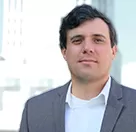James Brasuell, AICP is the former editorial director of Planetizen and is now a senior public affairs specialist at the Southern California Association of Governments. James managed all editorial content and direction for Planetizen from 2014 to 2023, and was promoted from manging editor to editorial director in 2021. After a first career as a class five white water river guide in Trinity County in Northern California, James started his career in Los Angeles as a volunteer at a risk reduction center in Skid Row. Prior to joining Planetizen, James worked at the Cal Poly Pomona College of Environmental Design, as an editor at Curbed LA, as editor of The Planning Report, and as a freelance contributor for The Architect’s Newspaper, the Urban Land Institute – Los Angeles Chapter, FORM, KCET, and the California Planning & Development Report.
Planning Neglected in Philadelphia's High School Fire Sale
Inga Saffron asks the tough questions of Philadelphia's sale of University City High School to Drexel University.

Induced Demand Explained (or Why We Can't Build Our Way Out of Congestion)
In case you need an easy link to reference when encountering arguments in favor of widening roads and freeways as a solution for traffic, Adam Mann provides an accessible and clear explainer article that sums up the limitations of such strategies.
A Walk in the Woods Just Got Expensive in Washington and Oregon
The largest private owner of timberland in Washington and Oregon is now charging access fees ranging from $75 to $550 depending on the permit area. The $30 fees for National Forest and state parks passes look cheap by comparison.
Great Streets? How about Healthy, Safe Streets?
Advocates and citizens in Boyle Heights, a historic and predominantly Latino neighborhood on the Eastside of Los Angeles, are hoping for more than economic development from the city's Great Streets initiative.
How to Improve America's Infrastructure in Four Easy Steps
Rob Palter shares insights from a recent round of interviews with "government leaders, private investors, and private operators in the field of infrastructure" about how the United States can improve the poor state if its infrastructure.

























